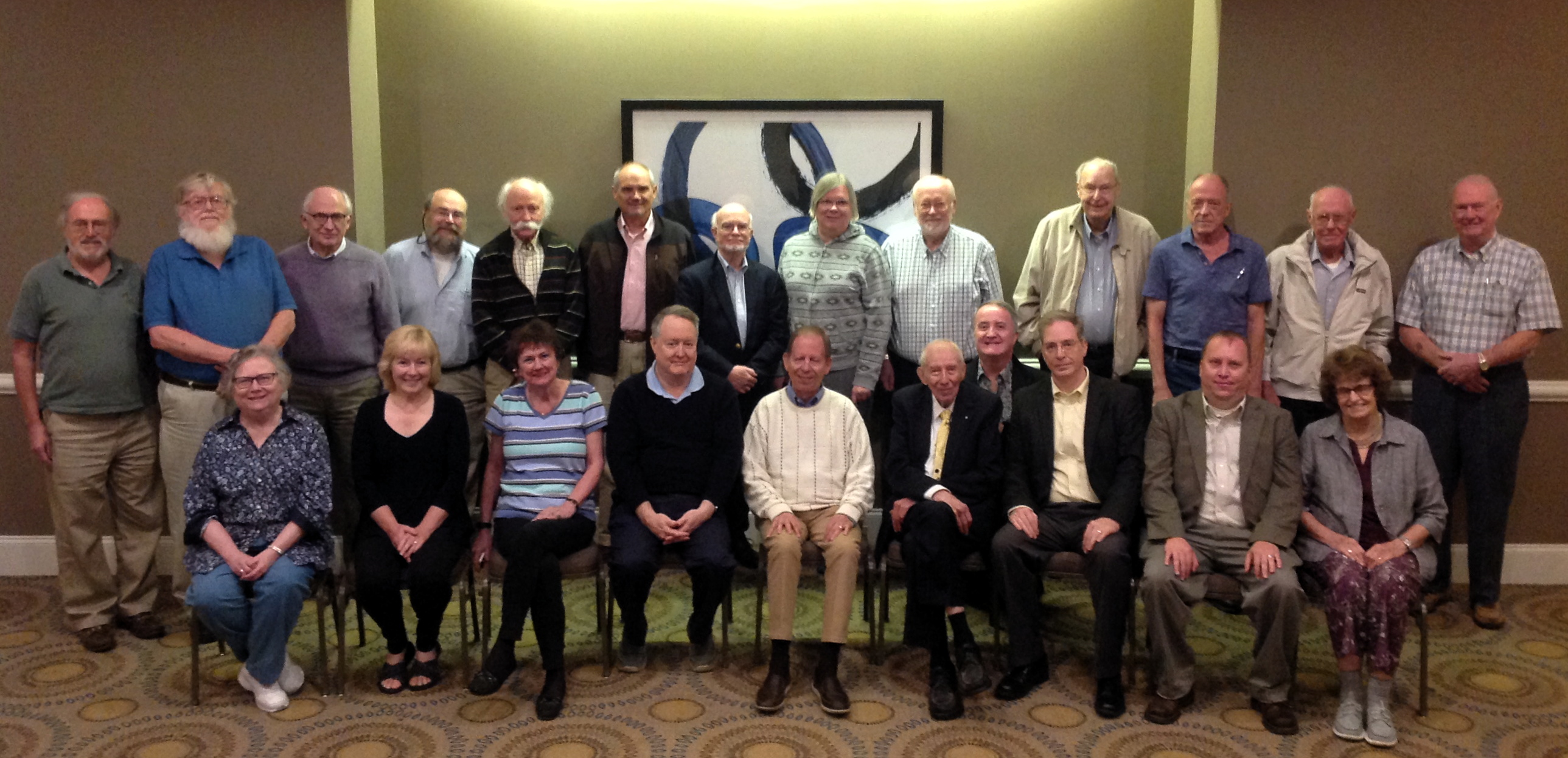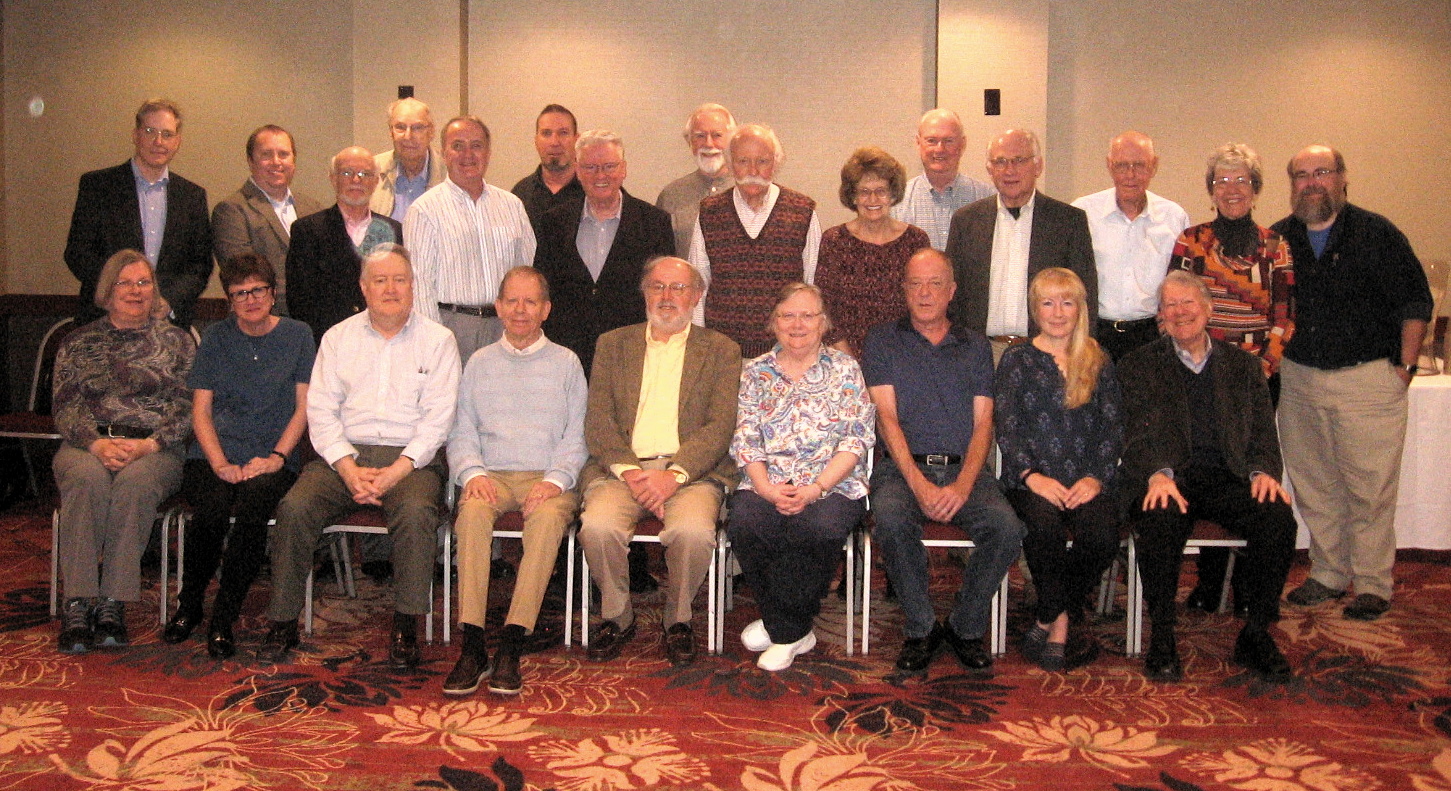At a luncheon held in St. Charles, Mo. last month, the Board for Certification of Genealogists (BCG) announced the first three recipients of the Donn Devine Award for Extraordinary Service. The award, established in honor of longtime BCG trustee Donn Devine, who died last month at the age of 90, recognizes those who have made important and lasting contributions to BCG. Two of the three recipients were Fellows: Thomas W. Jones, Ph.D., CG, CGL, FASG, FNGS, FUGA, and Elizabeth Shown Mills, CG, CGL, FASG, FNGS, FUGA.
Thomas W. Jones achieved BCG certification in 1994, and earned the Certified Genealogical Lecturer (CGL) credential in 2000. His contributions to BCG’s mission include a collaborative leadership role in the development and evolution of genealogical standards, the education of thousands of genealogists, and a body of literature considered essential reading. He served as a BCG Trustee from 1997 to 2007 and 2011 to 2014. He was a member of the Executive Committee for three years and President from 1999 to 2002. He was a key player in BCG’s publication of The BCG Genealogical Standards Manual (2000). He served as editor of Genealogy Standards (2014) and edited its second edition published in 2019. He was elected a Fellow of the American Society of Genealogists in 2007. As writer, lecturer, and teacher, he has promoted the upholding of high genealogical standards to thousands.
Elizabeth Shown Mills earned the CG credential in 1976, and CGL in 1988. She has continuously served BCG behind the scenes and publicly as a trustee and officer totaling twenty-four years. She held the executive offices of President (1994 to 1996), Vice President (1989 to 1994), and Member at Large (1996 to 1997). She was elected a Fellow of the American Society of Genealogists in 1981. One of America’s best-known genealogists, her service to BCG has extended beyond the offices she held—notably in her roles as scholar and mentor. She led the movement to elevate the field of genealogy to an academic social science. She encourages new genealogists and seasoned associates to uphold genealogical standards, seek the best sources, assess their validity, and critically analyze the evidence to solve genealogical problems. She has shaped the intellectual direction of the field through writing, editing, teaching, and modeling amity, generosity, inquiry, and integrity.


